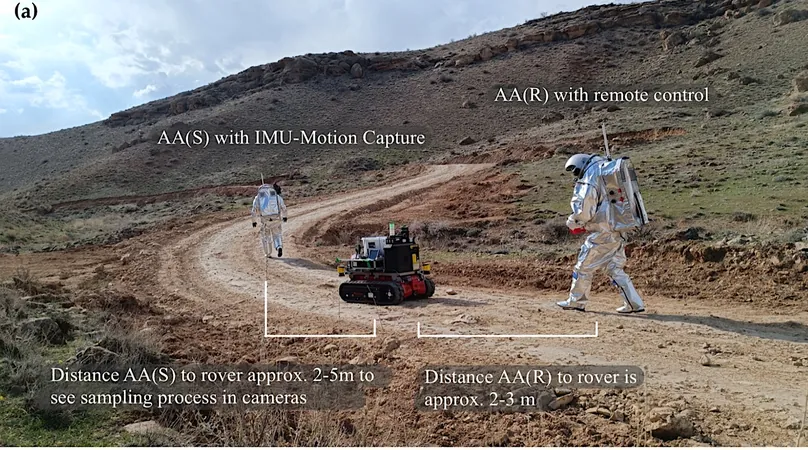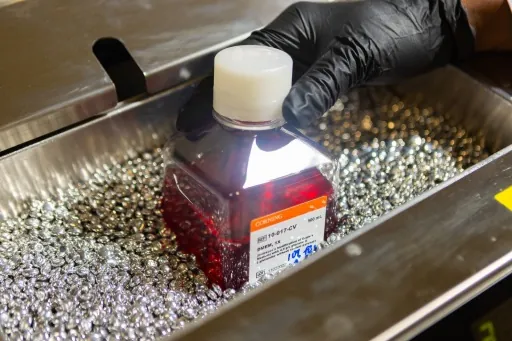
Could Herpes Be the Key to Conquering Late-Stage Melanoma?
2025-07-18
Author: Daniel
Harnessing a Virus to Fight Cancer
Imagine using the herpes virus, known for causing cold sores, as a weapon against one of the deadliest cancers: late-stage melanoma. This bold approach is being explored by scientists who are seeking innovative ways to treat patients with limited options.
Melanoma: A Growing Concern
Despite the overall decline in melanoma deaths, this aggressive form of skin cancer remains a major challenge, particularly since about half of those diagnosed with advanced cases find themselves without effective treatments. According to Dr. Gino In, an oncologist at Keck Medicine of USC, the need for new strategies has never been more urgent.
The Power of RP1: A New Viral Treatment
Enter RP1, a genetically modified version of the herpes simplex virus type 1 (HSV-1) that has undergone transformations to become a potential cancer fighter. Researchers have reengineered this virus by removing its disease-causing genes while enhancing its cancer-fighting capabilities. Dr. In explains that while healthy cells can generally fend off viruses, cancer cells struggle to do so, making them susceptible to RP1.
Promising Clinical Trial Results
In a groundbreaking clinical trial, researchers administered RP1 to 140 participants grappling with advanced melanoma, which had continued to thrive despite standard treatments. Patients received RP1 injections every two weeks, alongside additional therapy with nivolumab. The results were promising: about one-third of the participants saw their tumors shrink by 30%.
A Powerful Immune Response
What's even more exciting is that tumors not directly injected with RP1 also showed signs of shrinking or disappearing, indicating a systemic anti-cancer response. This suggests that RP1 could help mobilize the immune system to target cancer cells throughout the body, not just those visible or accessible.
Excitement in the Scientific Community
Dr. Amanda Kirane from Stanford Cancer Center views these findings as groundbreaking—especially for patients with tumors in difficult-to-reach areas. Experts believe that success with RP1 in treating melanoma may pave the way for its application in other cancers.
Comparing Treatment Efficacy
When examining the one-in-three response rate, Dr. In emphasizes that it's a competitive figure in the landscape of cancer treatments. Although other therapies exist, they often come with substantial side effects and require hospitalization. In contrast, RP1 is noted for its favorable safety profile and effectiveness.
Looking Ahead: Regulatory Approval and Future Trials
As excitement builds around RP1, the treatment's efficacy is currently under scrutiny with the U.S. FDA, which may grant accelerated approval by July 2025. Dr. In urges everyone to stay tuned—the implications of this breakthrough could dramatically reshape melanoma treatment strategies.


 Brasil (PT)
Brasil (PT)
 Canada (EN)
Canada (EN)
 Chile (ES)
Chile (ES)
 Česko (CS)
Česko (CS)
 대한민국 (KO)
대한민국 (KO)
 España (ES)
España (ES)
 France (FR)
France (FR)
 Hong Kong (EN)
Hong Kong (EN)
 Italia (IT)
Italia (IT)
 日本 (JA)
日本 (JA)
 Magyarország (HU)
Magyarország (HU)
 Norge (NO)
Norge (NO)
 Polska (PL)
Polska (PL)
 Schweiz (DE)
Schweiz (DE)
 Singapore (EN)
Singapore (EN)
 Sverige (SV)
Sverige (SV)
 Suomi (FI)
Suomi (FI)
 Türkiye (TR)
Türkiye (TR)
 الإمارات العربية المتحدة (AR)
الإمارات العربية المتحدة (AR)